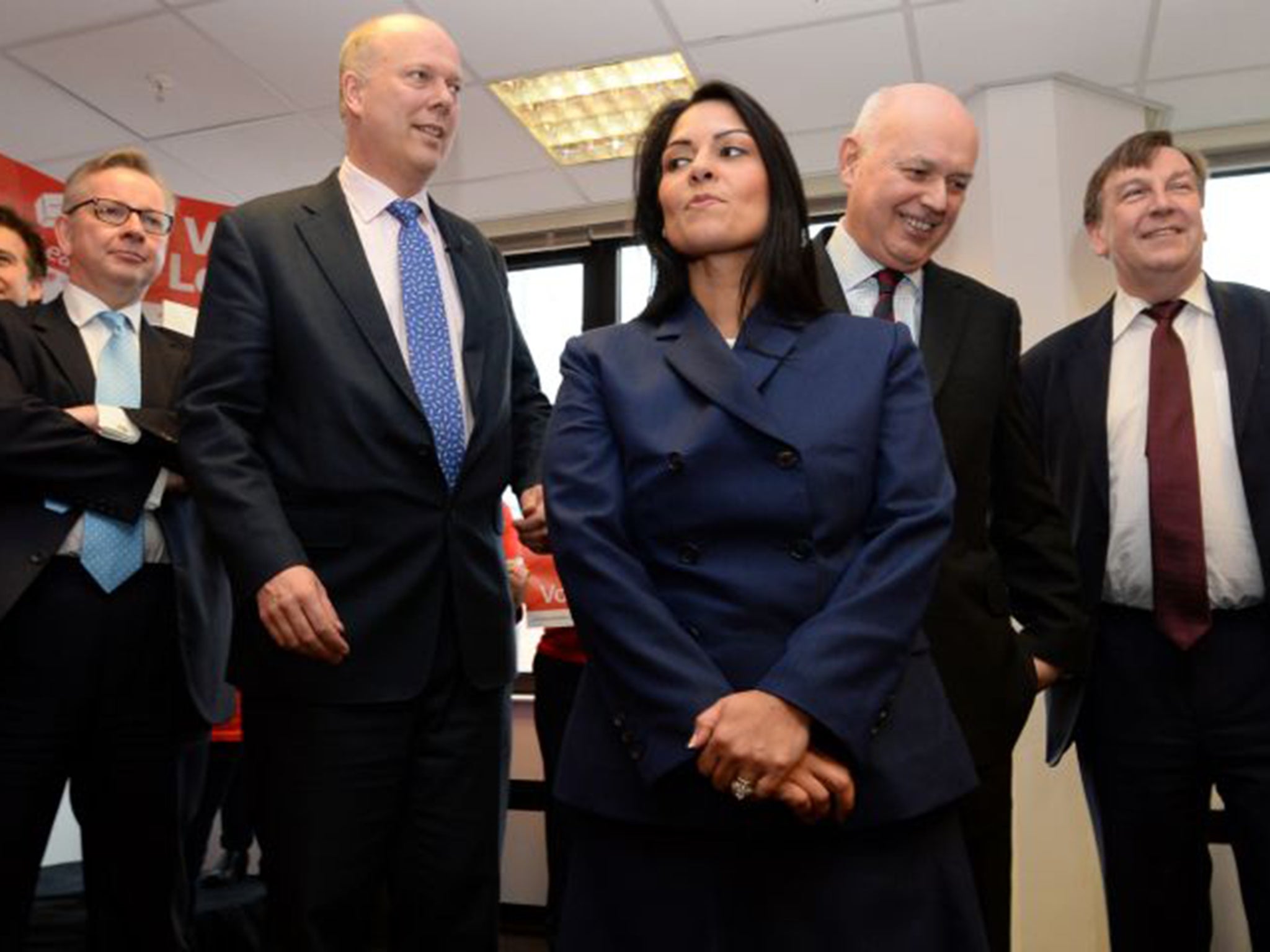EU referendum: Base your vote on hope not fear
Life outside the European Union would not be frightening, but it would be smaller. We would be a poorer, less important country

It would be a pity if the European referendum campaign were to become a contest of fear. The Prime Minister used the words safe, safer and security nine times in his short statement after Saturday’s Cabinet meeting to describe the benefits of staying in a reformed European Union. Michael Gove, the Justice Secretary, newly liberated to speak his mind on the subject, contradicted him by saying: “The EU’s policies have become a source of instability and insecurity – razor wire once more criss-crosses the continent.”
Everyone always says that they dislike negative campaigning, and yet politicians continue to use fear as a motivator because it works. It would be unrealistic, therefore, to hope that the referendum would be fought between competing soft-focus visions of European harmony or bucolic British insularity.
We should, however, try to be clear what there is to be afraid of. David Cameron, somewhat to his credit, seemed uncertain. First he suggested that leaving the EU was a perfectly reasonable decision that he might have arrived at himself if he had got out of bed on the other side. “I will never say that our country couldn’t survive outside Europe,” he said. “We are Great Britain – we can achieve great things.” But then he said that to leave would be a “leap in the dark”, a “risk at a time of uncertainty” and a threat to our national and economic security.
The Independent on Sunday supports our continued membership of the EU not because we are fearful of a life outside the bloc but because we are optimistic about the prospects for European unity. Life outside the EU would not be frightening, but it would be smaller. We would be a poorer, less important country.
Many of the arguments about security are unconvincing. Mr Cameron spoke of being better able to “work with our European partners to fight cross-border crime and terrorism”. Up to a point. The European arrest warrant is certainly an effective instrument, which is why Theresa May, the Home Secretary, who is no open-borders dreamer, has opted back into it. But we are not in Europe to fight crime.
Nor would we be less well-defended against our enemies if we left. Mr Cameron is trying to conflate an argument about our long-term geopolitical interests with one about national defence. Rather to our surprise, it was an argument that the hesitating Hamlet of last week’s drama, Boris Johnson, made well. Writing recently about how the arguments for In and Out were contending in his tousled head, he said: “Leaving would be widely read as a very negative signal for Europe. It would dismay some of our closest friends, not least the eastern Europeans for whom the EU has been a force for good: stability, openness, and prosperity.”
The Mayor of London was so persuasive that it would be most embarrassing for him to come out for Leave now.
When it comes to scaremongering, however, Mr Cameron is no match for the strange bedfellows of the Out cause. Mr Gove, who can be an intelligent and compassionate Conservative, and whose ambition to reform our prison system we have praised, sounds too much like Nigel Farage, the leader of Ukip, in conjuring up a vision of a continent teeming with desperate refugees from which we must cut ourselves off. (In passing, it is worth noting the irony that the anti-EU cause has reunited Mr Gove with his much-repudiated predecessor as Justice Secretary, Chris Grayling.)
Europe’s refugee problem is one that demands co-operation, not separatism. It should not be the basis on which you make your decision on 23 June. The question of Britain’s membership of the EU should be decided not by fear but by hope for a better future.
Join our commenting forum
Join thought-provoking conversations, follow other Independent readers and see their replies
Comments
Bookmark popover
Removed from bookmarks